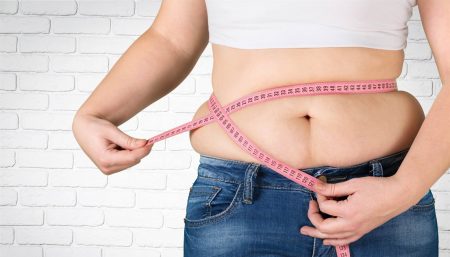Doctors recommend consistent exercise in combination with healthy eating as the best way for growing females to lose weight safely and keep it off. Besides, gaining control over the body at a younger age helps in future years when losing extra weight gets tougher.

According to research released by the American Journal of Preventive Medicine, junk food ads on TV may be a major reason obesity rates continue to rise among 12-17 year-olds. The studies examined by researchers at the University of Illinois-Chicago and University of Michigan concluded that 26% of TV ads seen by teens were for food products. The vast majority of these products contain high amounts of fat, sugar and sodium.
Teen girls can lose weight and have fun with a variety of aerobic exercise techniques, including dancing, tennis, football, volleyball and kickboxing.
Teens who watch more than two hours of junk food television ads a day had more fat than those who watch less, according to the National Institutes of Health.
Ways to Prevent Increase in Body Fat:
- Daily exercise: Aerobic workouts represent the best method for overall weight loss and maintenance, because exercise that gives your legs and arms the opportunity to move continuously burns the highest amount of calories. It also includes brisk walking, running,cycling, swimming or chasing an annoying sibling. You can jump rope a few minutes in the morning. This will get blood pumping, and will improve mental concentration throughout the day.
- Diet: A balanced diet with a wide variety of food provides vitamins and minerals. Breakfast is the most important meal of the day, skipping it can slow metabolism and keep energy levels low. A shake for breakfast containing soy milk, protein powder, banana and ice cubes can charge up your day. Teens should also pack a lunch or buy one at school. Complex carbohydrates can help sustain energy levels. Try to include at least 5 grams of fiber and 5 grams of protein in every breakfast. Teenagers require an energy intake of 2200 kcal/d and 2100 kcal/d for 10- to 15- and 16- to 18- year-old females, respectively to meet their growing needs with gradual lowering of fat intake. Once linear growth has stopped, fat intake should be limited to 30% of energy and at least 55% of energy should come from carbohydrate. The energy distribution of the average teenage girl’s diet is approximately 15% protein, 50% carbohydrate and 35% fat to maintain a healthy growth and prevent deficiency of iron and calcium.

- Strength Training: Two or three times a week can of resistance training can help teens to build muscle. Joining a health organization or youth group can help teens with weight lifting activities. Begin with light weights and build up to heavier ones. Simple exercises like push-ups, squats,lunges and sit-ups can go a long way to build strength. The bench press helps to build chest muscles. Squats help work leg and back muscles.Leg extensions build strong lower body muscles. Teens can perform abdominal exercises without weights if they choose. Performing sit-ups or bicycle kicks helps build a strong core. Young women can derive numerous benefits from participating in a sound, supervised strength-training program. Some of the more desirable consequences are improved muscle strength, better local muscular endurance, stronger connective tissue resulting in increased resistance to injury, enhanced motor performance in certain sport activities, and a greater appreciation of the value of fitness.
- Saying NO to Soda: Beverages can contribute many calories to the diet. Soda and sugary drinks have replaced water and milk as choices, but these drinks add high amounts of sugar and calories, and may contribute to weight gain. Energy drinks provide pure sugar with little nutrition value. These expensive drinks provide caffeine, which speeds up the heart rate. Drink milk or water primarily. A habit of soft drink consumption actually robs our bodies of calcium, leading to a condition known as osteoporosis.
- Stop skipping meals: Missing meals can stunt growth. It’s important to keep your metabolism fired up with the right foods at certain times of the day. Skipping meals tends to leave people hungrier later in the day, and they make up for the lost calories anyway. According to a study described in the December 2007 issue of Metabolism, people who eat only one meal per day are at greater risk of diabetes and experience higher lever levels of hunger. If you are the type of dieter who believes that skipping meals is a healthy weight loss plan and is a quick weight loss tactic, it’s time to re-examine your eating habits and make health a high priority in your life. Making healthy choices will lead to natural weight loss.
- Learn practical and effective coping skills. Inadequately managed stress can lead to anxiety, withdrawal, aggression, physical illness, or poor coping skills such as drug and/or alcohol use. During stress, production of insulin, the fat storage hormone, is dramatically increased. Insulin overrides signals from adrenalin to burn fat, and instead, encourages the body to store fat(for future use) in the abdominal region. In order to prevent such things from taking place teenagers need to take up stress relaxation techniques like yoga, meditation, deep breathing exercises.
Stress — any kind of stress, be it physical, mental or emotional — increases levels of cortisol which in turn encourage the storage of fat, especially around the belly.
-
Decrease negative self talk. How many times have you criticized yourself in the last 24 hours? Stop for a minute and think about it. What exactly did you say to the image in the mirror, this morning? “Look at that stomach! Your thighs are enormous! You’ll never fit into those pants you got last month. You look terrible!” Most of us wouldn’t dream of speaking to another human being like that. But we have no problem routinely addressing ourselves in a disrespectful, even demeaning, way. And those voices make weight loss, or any kind of change, difficult or even agonizing. Challenge negative thoughts about yourself with alternative neutral or positive thoughts. “My life will never get better” can be transformed into “I may feel hopeless now, but my life will probably get better if I work at it and get some help.” Try this: Make a list of positive affirmations. Pick one, look at yourself in the mirror and say it morning and night for 21 days. The affirmation will become a part of you!
Disclaimer
The Content is not intended to be a substitute for professional medical advice, diagnosis, or treatment. Always seek the advice of your physician or other qualified health provider with any questions you may have regarding a medical condition.



